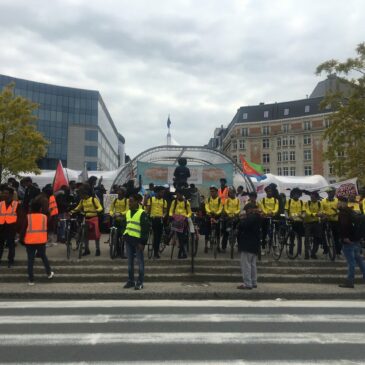News Highlights: NGO demands Libya war crime investigation, UN condemns Italy’s rescue fines, EU elections key for migration policy
In this week’s news highlights: UN and NGOs condemn Salvini’s rescue fines; France continues deporting Sudanese nationals; Activists protest EU cooperation with Eritrea; Federica Mogherini visits Horn of Africa; Frontex starts first operation outside EU territory; Testimony of a Ugandan woman on the Greek island of Samos; Amnesty states war crimes may have been committed in Libya; UN envoy warns international community to stop arms flow; Khalifa Haftar refuses ceasefire; Christians in Eritrea arrested ahead of independence day; Concern for IDPs in Ethiopia; Eritrean President meets with Transitional Military Council in Sudan; Sudan protesters call for strike; South Sudanese Government is sued by civil society over unity delay.



